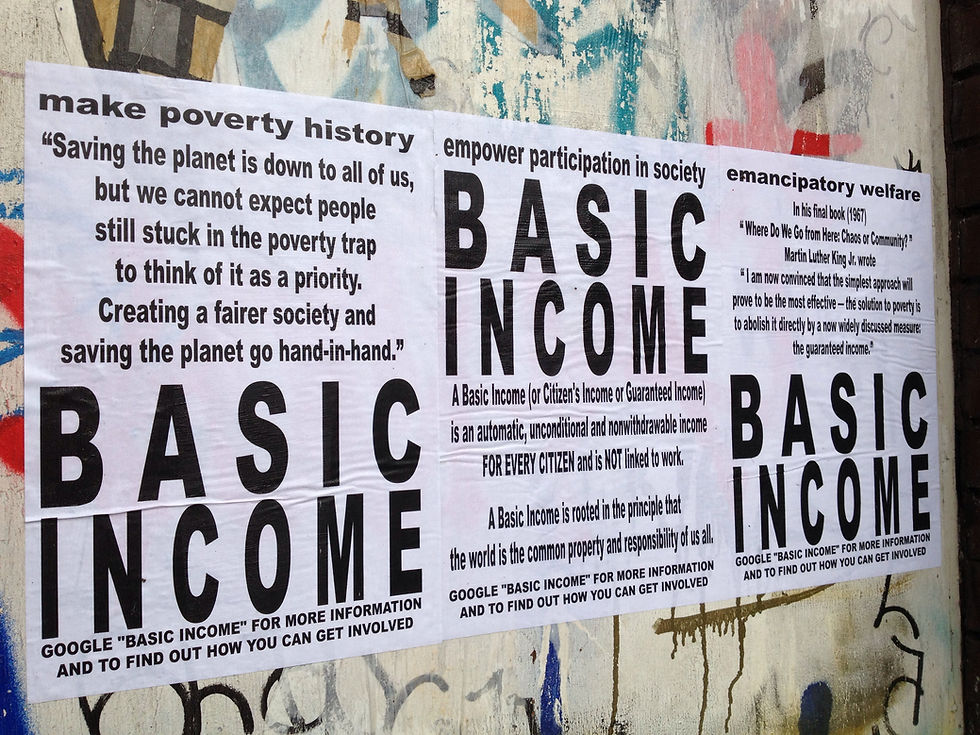Rashford Scores in Fight Against Poverty
- Zac Cash

- Jun 18, 2020
- 4 min read
Updated: Dec 22, 2024
After the UK government decided to scrap free meals for low income families, footballer Marcus Rashford launched his own campaign to provide millions of meals to children across the country. Prime Minister Boris Johnson has since reversed the decision, pledging to ensure students are fed throughout the summer holidays. However, Zac Cash explores why Rashford's Free School Meals campaign is only the first step in the long struggle for families in the poverty ladder.
This week, Manchester United footballer Marcus Rashford launched a campaign, calling for a change of government policy regarding free school meals. The free school meals initiative allows students from primary and secondary schools to eat when their familial income is based partially or wholly on the benefit system, and whether they fall under a certain income bracket. However, during the coronavirus pandemic, the scheme has changed. The majority of children throughout Britain have not been at school due to the lockdown imposed by the government. In turn, this has prompted concerns that children who would usually receive free meals at school could “fall through the poverty cracks” and be left hungry.
During term time, the government has supported families who have been eligible for free school meals through certain schemes. One of these schemes is a voucher system where families have been issued a voucher worth £15 a week, per pupil, to spend at a supermarket such as Waitrose, Sainsbury’s and Asda. The scheme has also run through the Easter and May half-term holidays. However, the government announced that the scheme would end when the summer holidays began, much to the horror of parents who fall into the income bracket that relies on free school meals to feed their children.
As a child, Rashford was on the free school meals scheme, and stated that he recognised the importance of its continuation throughout the summer, claiming that "the system isn’t built for families like [his] to succeed", Rashford teamed up with charities such as FareShare, which raised over £20 million to provide for children who would be receiving free school meals if they were still at school. Originally, this was intended to be for pupils in the Greater Manchester area, where Rashford grew up, but it quickly spread nationally. Acclaim for the campaign grew, and by the 15th of June, Rashford revealed that the initiative had been able to provide 3 million meals. He also wrote an open letter to the government, calling for the government to put an end to child poverty within the country and to extend the free school meals voucher system throughout the summer holidays.
A day later, on the 16th of June, the government announced that it would be making a policy U-turn, and that families would not be left to fend for themselves during the summer break. A coronavirus “summer school fund” would be established, with the voucher system to continue. The government has also stated that £63 million is available to help parents and children throughout the summer holidays, and their Holiday Activities and Food programme offers activities for children and free meals too.
However, this is not the end of the road for Rashford and the many people who qualify for the scheme. In an interview with the BBC, Rashford explained that he “[doesn’t] want this to be the end because there are more steps that need to be taken.” He continued, “People are struggling all year round so we need to learn how to help them and understand their situation fully”.

The BBC’s education and social affairs correspondent, Hannah Richardson, exposed the flaws that remain of the government-established scheme, despite Rashford’s improvements. Indeed, charities every summer expose the harsh reality that many parents do not eat, in order to allow their children to eat substantially at mealtimes - Rashford’s interventions have only made this fact mainstream. Additionally, the scheme only covers this summer holiday; what will happen to children who may not be able to go back to school when the new school year starts? Richardson also notes that the scheme only covers those who are already on free school meals. Therefore, any family who is in hardship, but were not already eligible for free meals, will remain without a guaranteed source of food.
The government’s response to the scheme has been criticised, especially within Boris Johnson’s own party, with one Conservative backbencher telling the Prime Minister that the issue could be seen “from outer space”, and another top cabinet minister stating that the issue should have been dealt with “a week ago”. With both more redundancies and a recession on the way, it looks like economic hardship is on the horizon too. Clearly then, whilst Rashford’s crusade to help those who fall under social austerity is a noble and worthy cause, the fight is not over.

_edited.png)



Comments